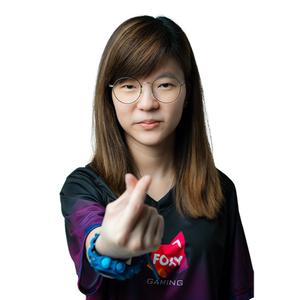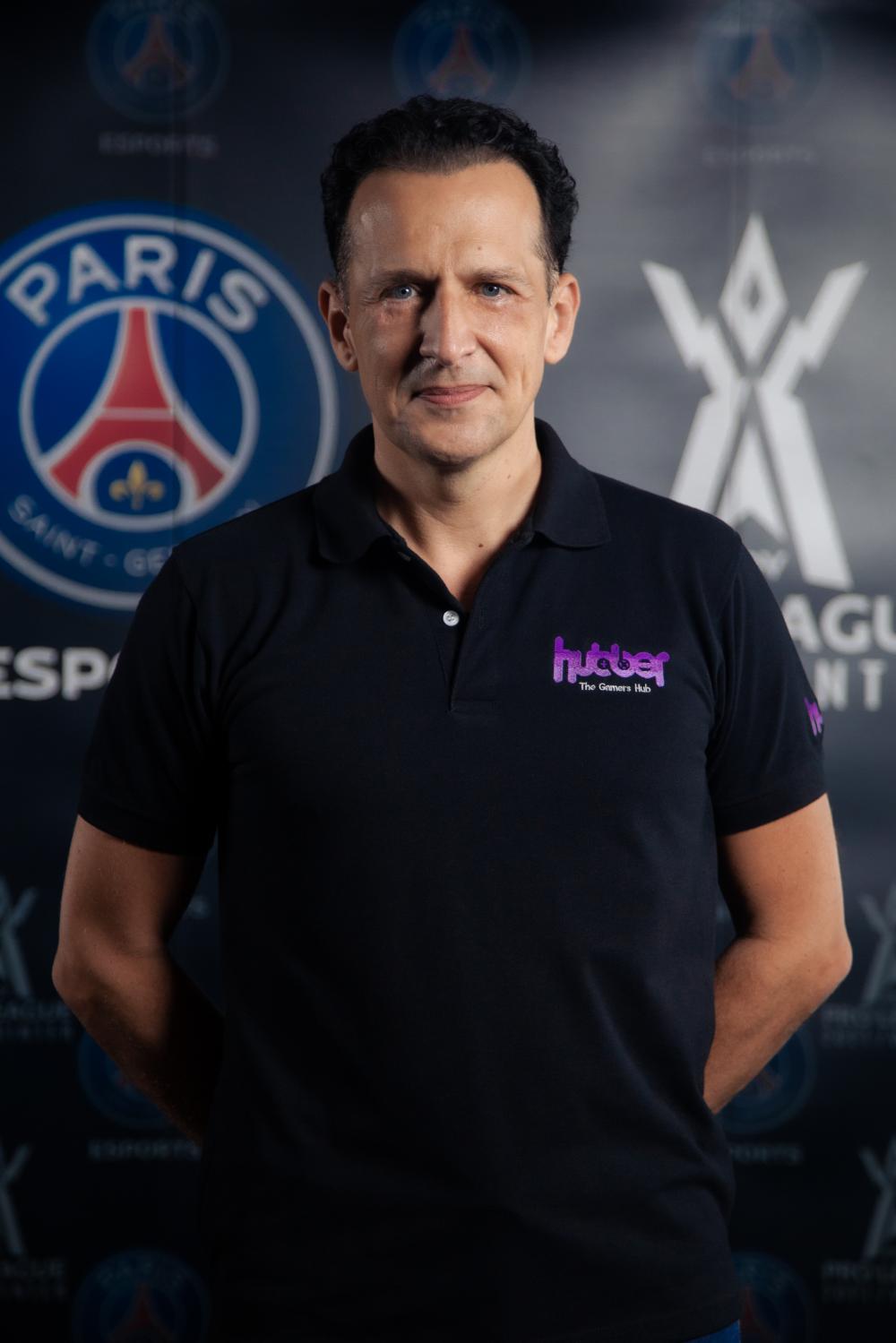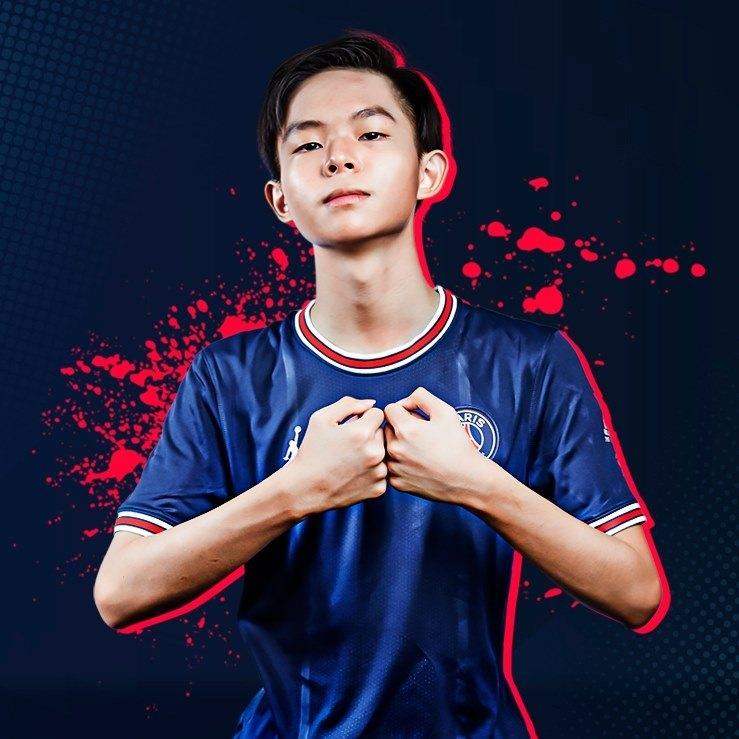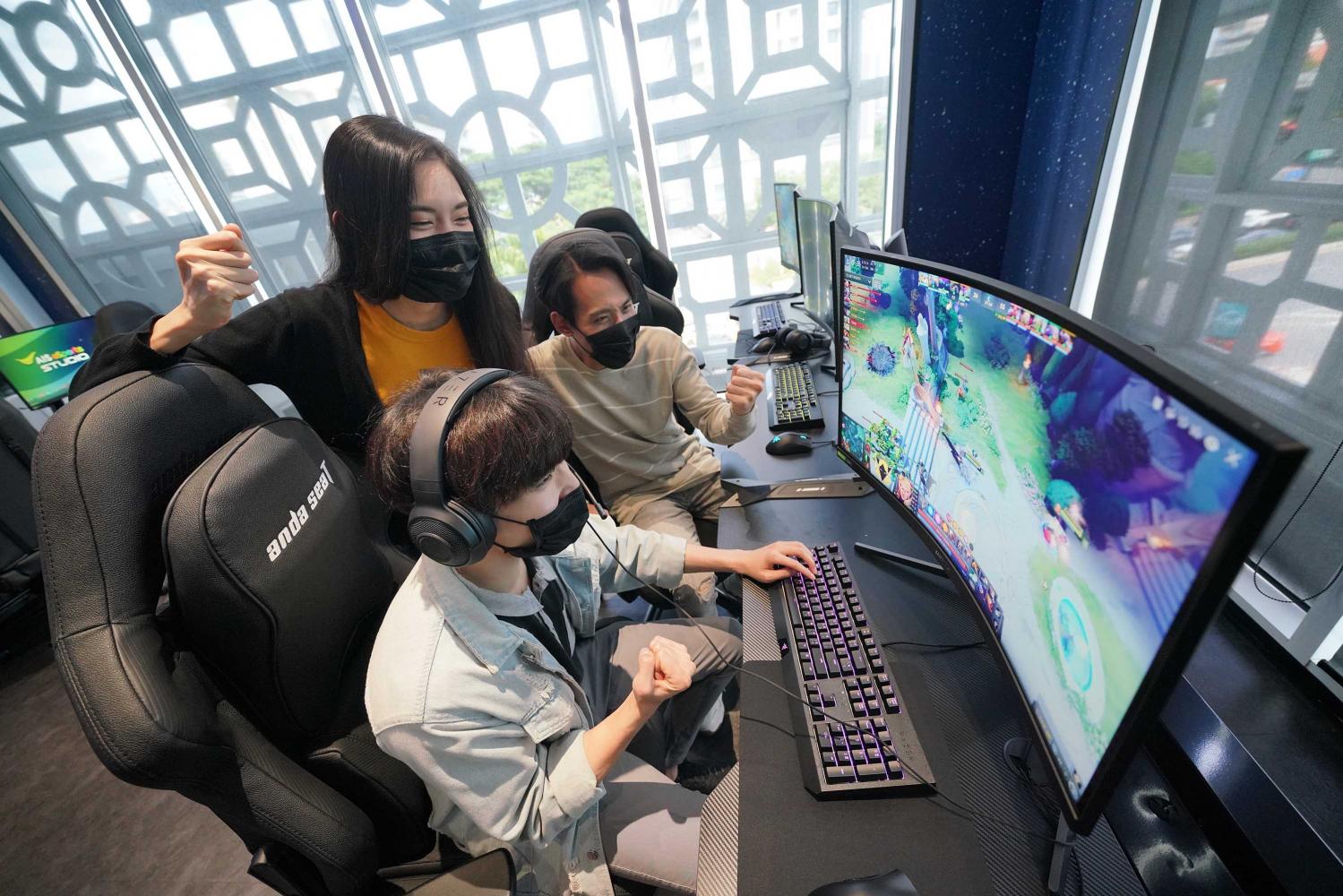
Not everyone aspires to a traditional career path, and while getting paid for playing games might sound far-fetched to some, it's becoming a lucrative niche for talented e-sports stars.
The gaming and e-sports industry, which is expected to surpass US$1 billion in revenue in Thailand this year, welcomes enthusiasts of all ages, from casual players to pros who follow a demanding training and competition regimen.
Thanunt Piriyakich is still in high school but his schedule is quite different from those of his peers. Recently turned 16, he's making his debut as a professional Arena of Valor player on the PSG Esports RoV team, which takes its name from France's most famous football club, Paris Saint-Germain.
Arena of Valor (AoV) -- designed by the Chinese conglomerate Tencent -- is a 5v5 mobile multiplayer online battle arena (MOBA) game -- a sub-genre of the real-time strategy games that allow players to compete simultaneously.
To win the game, a team of five players has to destroy another team's base. Players choose a "hero" -- a character that they want to control. Each hero has a unique set of abilities. In AoV, there are 108 heroes categorised into six roles: tank, warrior, assassin, mage, archer and support. Each game typically lasts 18-22 minutes.
AoV is known in Thailand by its former name, Realm of Valor (RoV). However, in China where the game originated, it's called Honor of Kings. The game is slightly different there as it features different heroes.
"My friend introduced me to RoV three years ago," Mr Thanunt who goes by 'Ktngii' in the game, told Asia Focus. "This is my first time playing in the league, and I have to adjust myself because it's more professional now. I need to be more serious and do my best."
Although Mr Thanunt earns what could be described as an "executive salary", he still has to go to school, which is now taking place online due to Covid restrictions. He is majoring in science and mathematics, with the latter his favourite subject. He wants to study accounting in university.
Classes start at 8am and end at 4pm. After that, it's practice time until 6pm. He then takes a two-hour break and gets back to practising until 10pm. "After that we will study the replays for 30 minutes to find mistakes and how to correct them." This process is guided by the team's coaches.

High schoolers in Thailand always have homework. "I do my homework during lunch break or after watching the replay," said Mr Thanunt. His day usually ends between midnight and 1am.
Fuelled by his passion for the battle game Dota2, Natthaphon "Masaros" Ouanphakdee has been a professional player for three years. He is now ranked 34th on the Southeast Asian Dota2 leaderboard.
His schedule is more flexible than Mr Thanunt's as it starts around 11am. "I do a one-hour warm-up until noon-ish, then practise from 1 to 6pm," the 24-year-old pro says, adding that he does another warm-up in solo rank matches to sharpen his skills before he goes to bed.
In Mr Natthaphon's view, Dota2 doesn't get as much attention in Thailand as it should, despite having been around for a long time. For one thing, the game can be played only on a PC, and 39% of gamers in Asean use mobile phones as their primary platform. As well, the game's complexity deters some players, in his view.
Mr Natthaphon now earns a six-figure salary from the team. The biggest prize he has won in a tournament was 5 million baht.
His ultimate dream as a Dota2 player is to qualify for The International (TI), an annual tournament hosted by the game's developer, US-based Valve Corp. This year's prize pool is worth $40 million.
Both Mr Natthaphon and Mr Thanunt agree that communication between team members is important in order to win. Mutual trust improves the team relationship and creates a winning edge.
Sarindhorn "JinNy" Wanothayarnchai has been playing games since she was 17. Now 30, she has built a career in the industry as the FPS director at Thai E-sports, an e-sports organising company. "My role is to oversee FPS (first person shooter) games from organising and promoting a competition to supporting players," Ms Sarindhorn told Asia Focus.
Ms Sarindhorn is still a pro player and a streamer. She plays Valorant, a multiplayer first-person shooter PC game, and has around 200,000 followers on Twitch, the live streaming platform favoured by top gamers.
In her view, "being a streamer, you have to entertain the viewer. I'm not that funny so I usually teach tips and just communicate with them". But when she wears her pro player hat, "I need to be in serious mode and disciplined."
"Newcomers always ask me how to start if they want to become a player. All I can say is just play the game to improve yourself. Put yourself out there in the community to find teammates and upcoming opportunities. With the right mindset, discipline, and a non-toxic attitude, everything will follow."

Natthaphon Ouanphakdee is a professional player of Dota2, a PC-only game that requires high levels of skill.
GROWING INDUSTRY
E-sports is gaining momentum, especially in Southeast Asia with its large young generation of digital natives.
Revenue in the global gaming and e-sports industry is forecast to reach $175.8 billion this year and to grow to $218.7 billion in 2024, according to a report by Newzoo, the Netherlands-based games and e-sports analytics firm.
Asia-Pacific is expected to generate $88.2 billion or 50.2% of that global revenue this year, with 1.6 billion people playing at some point.
Covid-19 has disrupted players' routines in the past two years. Covid-related restrictions have resulted in players and fans spending more time in front of different sizes of screens watching Twitch and YouTube.
With millions of people stuck at home and looking for new ways to keep themselves entertained, the e-sports fan base has grown. Newzoo forecasts that global live-streaming viewership will hit 728.8 million in 2021.
Since they are fundamentally online to start with, gamers have been able to continue to play during the pandemic and produce content to serve their fans. Of course, the offline element -- tournaments that normally take place in a physical arena -- has been affected, notes Marcus Luer, chief executive officer of Phygital Space Development, a licensing partner of the PSG Esports RoV team, and founder of Hubber, a tournament platform.
But given the impressive expansion of the industry even amid the pandemic, it's fair to say that the e-sports industry has adapted very well.
In fact, the shift in behaviour during the pandemic is likely to stick, with hybrid online/offline events becoming more common among gamers and fans, according to a report titled "Games and Esports: Bona fide sports", by Tencent and Newzoo.
The fan base is dominated by Gen Z -- those born between 1997 and 2012 -- and Millennials -- those born between 1981 and 1996. The report found that 71% of Gen Z and 67% of Millennials both play and watch gaming content.
E-sports first took off in the developed economies of North America and Western Europe, at a time when most games were played on PCs and required advanced IT infrastructure that was lacking in developing countries.
However, the industry is being transformed in the new mobile-first economy. Mobile phones are now the primary means of internet access for millions of people, and good 4G and 5G connections have allowed consumers to embrace the full experience of gaming in countries such as Thailand, Indonesia, Malaysia and the Philippines. Eighty-two percent of the total online population in Southeast Asia play mobile games, according to Tencent.
"As long as you have a mobile phone -- and you don't need a top-end phone -- you can still play the games," said Mr Luer.
Developers are also adapting games accordingly to serve the changing audience, with new e-sports offerings coming out all the time. Games that are popular now might not be popular in 10 years, he added.

"Newcomers always ask me how to start if they want to become a player. All I can say is just play the game to improve yourself" Sarindhorn "JinNy" Wanothayarnchai FPS director at Thai E-sports
CAREER PATH
With huge sums of prize money circulating in the industry, aspiring gamers are drawn to join the race. But first, they need a team. Mr Luer shared the process of building the PSG team in Thailand from square one.
"Once we had decided to go ahead with the team. The first thing we did was hire three people: a coach, an analyst and a team manager," he explained, adding that all three were local e-sports veterans. "They have all the data on the players. They have everything you need to know. They know who to call basically."
Then the scouting started. It took PSG Esports RoV about two months to find the people it wanted to fill its five positions.
Mr Luer described the team players as "a good mix of a bit older talents … and a couple of young guys who we felt had a lot of potential.
"It's clear that the young guys are still learning, getting used to the pressure, and dealing with these games which can last up to 2-3 hours." A best-of-five format is used in the tournament, so a team has to win three matches to advance.
Since it's a mobile game, "Eye-to-hand coordination is the key to the puzzle", but it also takes a lot of mental strength. "Once you play, it takes a lot of energy and effort. If it's a very close game, then that's where you see the difference between an experienced team and a team that's still learning. That's when games are won or lost," Mr Luer added.
PSG Esports RoV is currently fifth in the RoV Pro League 2021 winter table, which has 10 million baht at stake. Three places in the Championship round have been secured just one more place remains to be won.
The bigger the e-sports community gets, the more jobs it creates. Hubber, launched in April this year, aims to live up to its name as a place where gamers and streamers can play different games together, says Mr Luer.
The company has partnered with Garena, the publisher of Arena of Valor in Southeast Asia, to launch a semi-pro League called RoV-D1 with prize money of 1 million baht.
Acting as a "little TV station", Hubber has also partnered with streamers to draw bigger audiences. Streamers -- influencers in the gaming world -- are "the stars" in the industry. "They might be not even the best players in the world, but they are entertainers," said Mr Luer.
"It is not just a passive TV experience" where younger viewers sit and watch something anymore, he added. "They want to talk, comment and have fun while watching their favourite games.
"These influencers have really gone beyond just playing games," he said, as streaming platforms can be a hangout where viewers can also watch movies and listen to music together.
Hubber also aims to "create a career path for the gaming community from just playing for fun … to theoretically becoming a pro player, or having other opportunities in the industry", such as graphic designers, game casters, programmers or even computer engineers.

"This is no longer just a bunch of kids playing. This is very serious business," says Marcus Luer, chief executive officer of Phygital Space Development and founder of Hubber.
PUBLIC PERCEPTION
Many people agree that gaming and e-sports have had their share of image and reputation problems. However, Mr Luer believes there has been a massive shift in public perceptions in recent years.
He points to two factors. First, people realise that e-sports can be a career. "I'm not saying everyone will become a pro player. That's equally as hard as saying you want to be a pro tennis or football player. But I do think people, especially parents, are now starting to see that there are careers in this industry."
Second, the gaming industry is growing tremendously and so is the prize money. Next year, when Honor of Kings and Arena of Valor merge in the World Cup, its prize pool will total $8 million.
"That's huge money. This is as if you won Wimbledon or the US Open. This is no longer just a bunch of kids playing. This is very serious business," said Mr Luer.
As well, e-sports was part of the Asian Games for the first time in Jakarta in 2018. It is also played in Southeast Asian (SEA) Games with eight different titles including League of Legends, League of Legends: Wild Rift, PUBG Mobile, Mobile Legends: Bang Bang, FIFA Online 4, Free Fire, Arena of Valor and CrossFire.
Gaming has become a daily routine for millions of young people, but still, not everyone approves. The Chinese government recently imposed restrictions on its giant gaming industry. Children under 18 are limited to playing video games for three hours per week -- and only on Fridays, Saturdays and Sundays between 8 and 9pm.
"Gaming addiction has affected studies and normal life … and many parents have become miserable," the General Administration of Press and Publication of China said in a statement.
These rules will "no doubt" have an effect on the Chinese gaming industry, Mr Luer said. However, "it's not as simple as it sounds to be able to really control this. They can control what they do with companies … but monitoring how kids play, I think that's very difficult and to some degree, it will then just go a little underground.
"As with anything you do, you want to do things in moderation. It doesn't matter what it is. … Gaming is no different than many other things. You want to do things at the right level where you're not jeopardising your health or neglecting other things you are supposed to do."

Thanunt Piriyakich, 16, is already a professional Arena of Valor player with the PSG Esports ROV team.

Gamers enjoy the action at the AIS e-sports studio at Samyan Mitrtown in Bangkok.